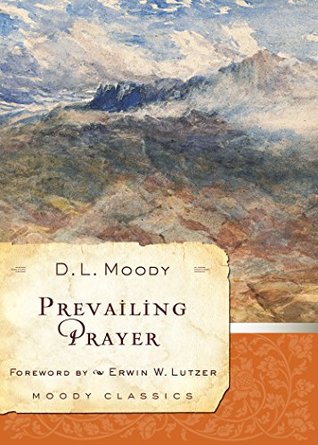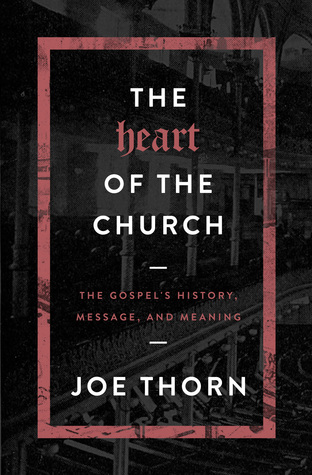The Heart of the Church: The Gospel's History, Message, and Meaning. Joe Thorn. 2017. Moody. 128 pages. [Source: Review copy]
The church today has a heart condition. She has not taken care of herself. As a result, she is sick. Modern religious doctors have written prescriptions to treat her lethargy, joylessness, fruitlessness, and weakening faith. But they are addressing only the symptoms, never getting to the root problem. The heart problem plaguing the modern church cannot be healed with new programs or innovative marketing tactics. The root problem for many local churches is that the gospel no longer fills their hearts.
Joe Thorn has written a trilogy of books about the church for the church that will be published in 2017. The first one is The Heart of the Church. (The next one, which I accidentally read first, is
The Character of the Church. The third one, which I will pick up to read really soon, is The Life of The Church).
The church should not be confused about the gospel--what the gospel is, what the gospel isn't. But it is. You don't have to be a Christian confused about the gospel--confused about why the gospel matters, confused about what the gospel continues to mean to us as we live our lives.
Joe Thorn's little book, The Heart of The Church, is ALL about simplifying for readers everything about the gospel. By simplifying I do not mean subtracting the "hard" messages, the "controversial" messages, the "uncomfortable" bits that make us squirm reminding us that the Word of God is sharper than a sword and is intended to pierce through us. I mean laying out the gospel clearly, concisely, as it is--take it or leave it.
Chapter 1: The Theme of Scripture
Chapter 2: The Life of Christ
Chapter 3: The Death and Resurrection of Christ
Chapter 4: Justification
Chapter 5: Forgiveness
Chapter 6: Faith and Forgiveness
Chapter 7: Reconciliation
Chapter 8: Sanctification
Chapter 9: Good Works
Chapter 10: God Condemns Justly
Chapter 11: God Saves Sovereignly
Chapter 12: God Atones Effectively
Chapter 13: God Calls Irresistibly
Chapter 14: God Sustains Faithfully
As you can see from the table of contents, Joe Thorn covers essentially 'everything' about the gospel. (The last few chapters covers the doctrines of grace.) These basics are the foundation of the Christian faith. And these aren't trivial matters that are optional for believers these days. These are the very truths of God revealed to us in Scripture that are worth living and dying for.
Gospel truths cannot impact you on a day to day basis, cannot transform you, if there's confusion as to what's true and what's false. If you're not sure what you believe or why you believe it. If you're just deciding day by day by day what feels right for you to believe in the moment. Oh, I'm feeling good today, God is a God of LOVE after all.
Some truths need to be as essential to our well being as breathing in and out. These truths are presented and presented well in this new book. Though to be fair, this new book is full of old, old truths and based on an old, old story.
Favorite quotes:
The gospel of Jesus Christ is not a mere set of propositions. It is not a lifestyle or a perspective on life…. The gospel is not something we do. The gospel is historical truth. The gospel is something that happened—something God did for us. To say it simply, the gospel is the life, death, and resurrection of Jesus.
In His life, Jesus fulfilled the law and accomplished all righteousness on behalf of sinners who have broken God’s law at every point. In His death, Jesus atoned for our sins, satisfying the wrath of God and obtaining forgiveness for all who believe. In His resurrection, Jesus conquered sin and death, and guaranteed our victory over the same in and through Him.
To be gospel-centered means that the gospel, and ultimately Jesus Himself, is our greatest hope and boast, our deepest longing and joy, and our most passionate song and message. It means that the gospel is what defines us as Christians, unites us as brothers and sisters, changes us as sinners/saints and sends us as God’s people into the world on mission. When we are gospel-centered, the gospel is exalted above every other good thing in our lives and triumphs over every bad thing set against us.
The gospel happened, and by it we are saved. To say that the gospel is history is true, but that history has to be explained. What did Jesus accomplish by His life, death, and resurrection, and what does the believer receive from Him on account of these events? To interpret the history is the work of theology, and to do this we must rely on Scripture alone.
The Bible, in all its parts, is one unified story of God’s love for and salvation of sinners through His Son. From the opening pages of Genesis to the conclusion of Revelation, we discover the unfolding plan of God’s work to redeem a people for His own possession through the life, death, and resurrection of Jesus Christ. He is the hero of Scripture, the full revelation of God, and the one to whom all Scripture points.
Sin and judgment came quickly into the world, but the promise of deliverance came even quicker.
Jesus, the Son of God, came to take away sin, fulfill all righteousness, establish a kingdom, and conquer the Devil. He did it all through His life, death and resurrection, which became the basis for God’s final covenant—the new covenant.
Part of the good news of the gospel is that Jesus’ exemplary life was also one of substitution. He took the place of sinners to fulfill their responsibilities before the face of God. In every area that we have failed to keep God’s commands, Jesus succeeded. In our responsibility to love our neighbors, pray in all things, serve others, forgive those who hurt us, and obey the commands of God, Jesus never failed.
He lived in our stead so we could be counted righteous, and He died on our behalf so we would be forgiven.
The righteous willingly suffered for the unrighteous so we could be made righteous. In this sense, we can say that Jesus died for us, to save us. But there is another sense in which we can say that Jesus died for God. Our transgression and rebellion against God must be punished. This is why Jesus died on the cross. He died to satisfy God’s wrath against us. The word that the apostle John uses to explain God’s love for us on the cross is propitiation (1 John 2:2). The word essentially means “to satisfy.” But more specifically, propitiation is the satisfaction of God’s wrath against our sin through the death of Jesus Christ (see also Rom. 3:25; Heb. 2:17). Thus, Jesus’ death on the cross is the clearest expression of God’s justice, because in it He was punishing sin. Yet Jesus’ death is also the clearest expression of God’s love for us, and that makes Jesus’ death good.
There is no good news for sinners if Jesus did not live a perfect life on our behalf. Nor is there good news for us if He did not die on the cross for sins. Nor is there any good news if Jesus did not also rise from the dead. All this is the gospel. It is history, and it is foundation for our doctrine.
But the central message the church is called to hold out before the world is that forgiveness of sins and reconciliation with God is offered in Jesus Christ and no one else. But, as we discussed earlier, forgiveness cannot be offered at the expense of justice. Our just God must punish sin while extending the grace of forgiveness. How can God do both? Like all gospel promises, the answer is found in Jesus Christ.
Christian faith is not wishing. It is dependence on Christ and His promises and truths revealed in Scripture. Faith is based on what God has said in the light, not a trust fall into the dark. Faith is best understood as being made up of three parts: knowledge, assent, and trust.
Repentant people see their sin, hate their sin, and prayerfully seek to reject their sin and walk with God. While some of our sins are obvious to us, we comfortably ignore others. We all must prayerfully ask the Holy Spirit to lead us in repentance as we examine our lives in light of the Word and seek to lay aside the sin that so easily entangles us.
© Becky Laney of
Operation Actually Read Bible
 I will be sharing some John Owen quotes this year. The first book I'll be reading is Of the Mortification of Sin in Believers (1656).
I will be sharing some John Owen quotes this year. The first book I'll be reading is Of the Mortification of Sin in Believers (1656).












